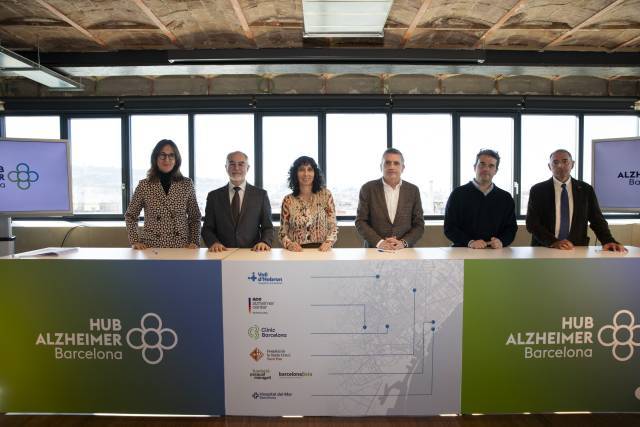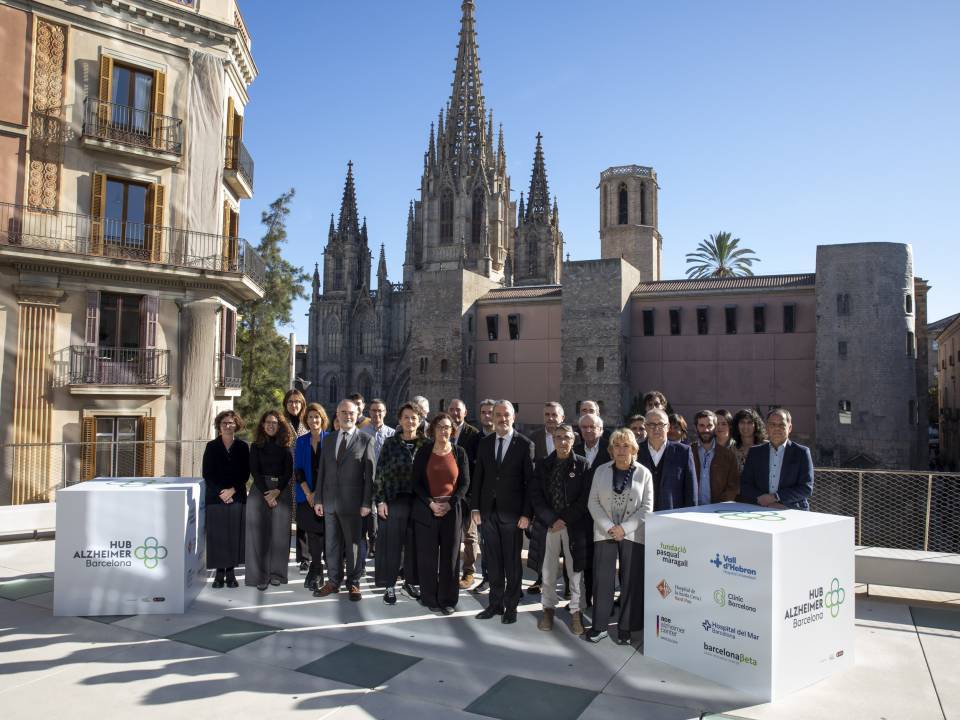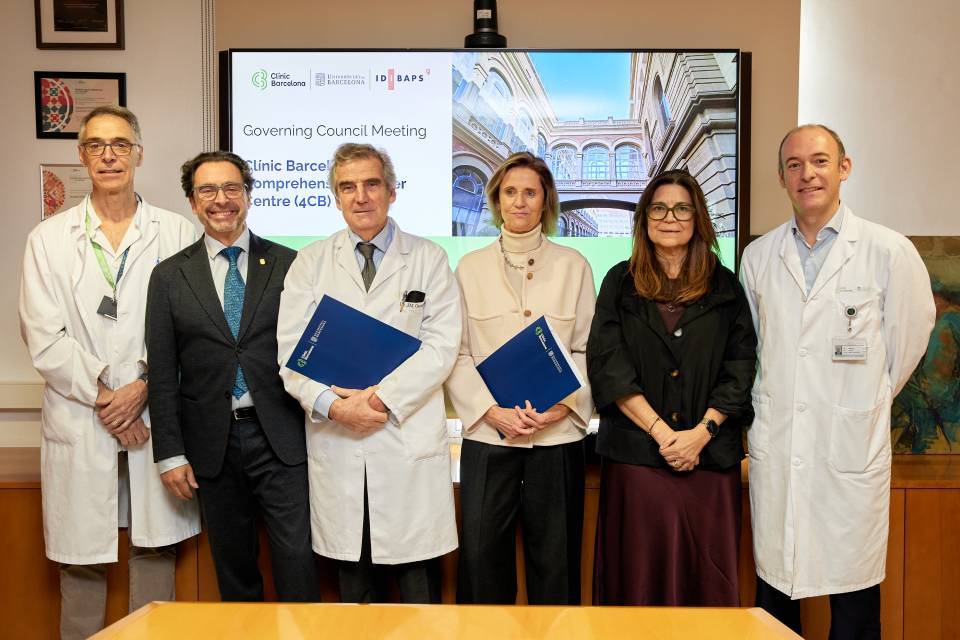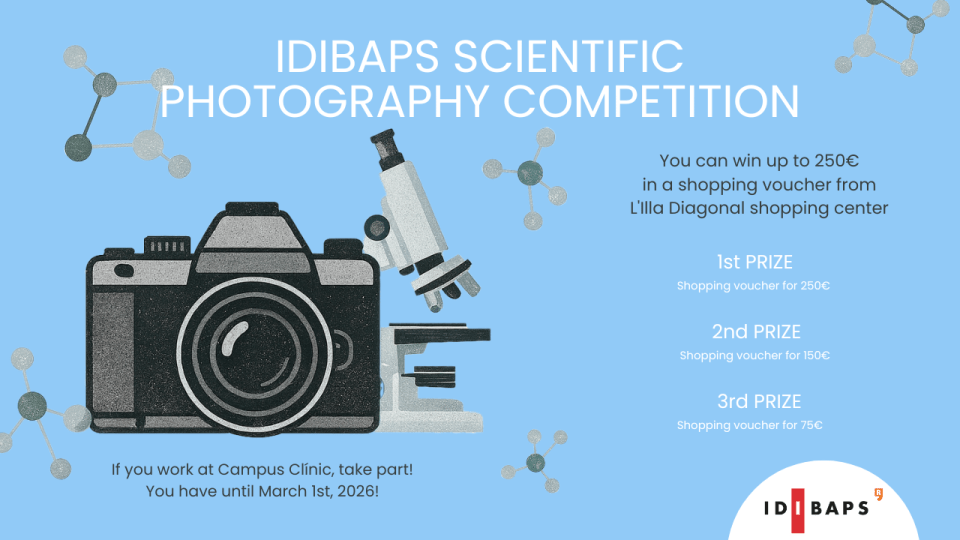This unique project is promoted by its founder, the Pasqual Maragall Foundation, with the support of Barcelona City Council and the participation of IDIBAPS-Hospital Clínic Barcelona, Hospital de Sant Pau, Hospital del Mar and Vall d’Hebron University Hospital, as well as two prominent institutions specialised in Alzheimer’s research: Barcelonaβeta Brain Research Center (BBRC) and Ace Alzheimer Center Barcelona.
At the event to launch this new initiative, IDIBAPS-Hospital Clínic Barcelona was represented by Dr Raquel Sánchez-Valle, the medical director of the hospital and head of the IDBAPS research group Alzheimer’s disease and other cognitive disorders, and Dr Albert Lladó, the head of Hospital Clínic’s Unit of Alzheimer’s and other cognitive disorders and a researcher in the same IDIBAPS group.
Speaking at the event, the mayor of Barcelona, Jaume Collboni, said that ‘Barcelona has decided to actively help in the fight against Alzheimer’s. This is a city-wide issue, which is why the city’s main institutes and research centres, which are also global leaders, are joining forces with the support of Barcelona City Council to work together and pool talent and resources. Today we are sending a message of unity to promote science. I am sure that this Barcelonan union will unlock promising discoveries that will bring us closer to finding a cure for Alzheimer’s’. Barcelona City Council is providing one fifth of HUB Alzheimer Barcelona’s budget.
Dr Arcadi Navarro, the director of the Pasqual Maragall Foundation, stressed the magnitude of the challenge due to the global impact of dementia, with millions of people affected, nearly a million of them in Spain, and its growing prevalence due to an ageing population. ‘Given this scenario, and leveraging the paradigm shift in the approach to Alzheimer’s made possible by recent scientific advances’, he said, ‘Barcelona must move forward by taking advantage of scientific leadership. The creation of this HUB will promote scientific excellence, attract investment, improve the transfer of research to clinical practice and promote training in Alzheimer’s and neurodegenerative diseases’.
Some key activities that have already been carried out were described in detail during the presentation of HUB Alzheimer Barcelona, such as the organisation of the first conference on ‘Challenges and opportunities in implementing biological therapies for Alzheimer’s’, in which the Catalan Health Service also participated. Activities under way or about to be launched include the first call for collaborative predoctoral grants, aimed at promoting cooperative research between HUB member centres, and training to improve the diagnosis and management of Alzheimer’s disease in primary care, developed in partnership with the Catalan Society of Family and Community Medicine (CAMFiC).
Dr Mercè Boada, the founder and medical director of HUB member Ace Alzheimer Center Barcelona, said that ‘initiatives like these are essential to promote research and make headway in scientific knowledge. Specifically, working together with CAMFiC is key to strengthening the role of primary care in the early diagnosis and management of Alzheimer’s disease’.

A document was signed by the top representatives of the participating organisations during the event, formalising their joint commitment to promote HUB Alzheimer Barcelona. The closing remarks were given by the Catalan Minister of Health, Dr Olga Pané.




